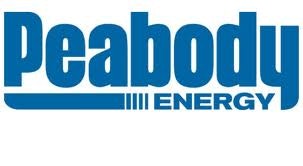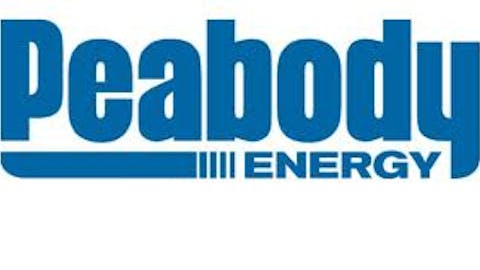Headquartered in St. Louis, Peabody Energy Corporation (NYSE:BTU) is the biggest private-sector coal company in the world. Its chief businesses include mining, sale, and distribution of coal. The company also trades coal through its offices located in Australia, China, Germany, United Kingdom, Indonesia, United States and Singapore.
On Jan. 29, Peabody Energy Corporation (NYSE:BTU) released its earnings for the fourth quarter of 2012. The company reported adjusted earnings per share of $0.36 versus estimated EPS of $0.25. Revenues were down 10% to $2.01 billion, beating the estimates by $0.08 billion. U.S. mining revenue was down 5% to $1.09 billion. Talking about the Australian mines, revenues decreased to $0.9 billion from $0.92 billion in the same quarter last year. SG&A expenses were down 0.5% to 3.3% of total net sales. Low coal prices were the main reason behind the company’s average performance in the fourth quarter.
What’s in store for 2013?
Earnings Forecast
In 1Q13, the company expects an adjusted loss of between 4 cents and 26 cents a share, while analysts expect Peabody to report a loss of 9 cents. For the full year, analysts expect it to earn 41 cents on revenues of $7.76 billion.
More Focus on Australian Mines
Peabody Energy has recently announced that it would be focusing more on Australia, thanks to higher prices for steel-making coal and lower production costs. The company’s acquisition of Macarthur Coal in 2011 helped the company grow its presence in Australia, which is the largest exporter of steel-making coal in the world. In 2012, more than 43% of total revenues came from company’s mines in Australia.
United States Energy Outlook
According to the U.S. Energy Information Administration (EIA), the cost of coal relative to natural gas is expected to decrease in the coming years. As a result, the electricity generated by natural gas is expected to go down from 30.3% in 2012 to 27.6% in 2014. This would increase the share of power generated through coal, which is expected to rise from 37.4% in 2012 to 39.1% in 2014.
With coal prices expected to decrease (relative to natural gas) in 2013 and 2014, most of the power generating companies would turn to coal instead of natural gas, which in turn would drive Peabody’s sales up.
Valuation
Peabody Energy is trading at a forward P/E (1yr) of 11.81x, depicting the fact that it’s relatively cheaper than its peers. A gross margin of 28% shows that the company is minting strong profits on its sales. It has a dividend yield of 1.40% and has a mean recommendation of 2.2 on the sell side. A mean target price of $32.5 on the sell side shows that Peabody Energy is an extremely undervalued stock, having an upside potential of almost 40%. This makes Peabody Energy one of the top buys in the energy sector.
Coal Industry’s Major Players
The United States’ largest underground coal mining company, Consol Energy (NYSE:CNX) , is trading at a forward P/E (1yr) of 14.98x, making it a rather more expensive buy than Peabody Energy. It has a healthy PEG of 2.59 and a PEGY of 2.12. One of the hallmarks of Consol Energy is that it’s earning a mammoth gross margin of 29% on its sales. A mean recommendation of 2 on the sell side shows that it’s also one of the best buys in the energy sector.
On the other hand, analysts expect Arch Coal Inc (NYSE:ACI). to report a negative EPS of $1.15 in 2013. It’s yielding a dividend of 2% on its stock and has a gross margin of 19%, which is quite less than its top industry peers. It has a mean recommendation of 2.7 on the sell side, showing that it isn’t as attractive as Peabody Energy and Consol Energy. Therefore, we remain neutral on Arch Coal at this point in time.
Conclusion
As thermal coal’s price is expected to remain lower than natural gas in the coming years; its demand is bound to get higher, ensuring more earnings for Peabody Energy. In the case of Australia, higher prices for steel-making coal plus lower production costs would add further income for the energy giant. Moreover, met coal prices are also expected to rise slightly this year, thanks to high steel prices in China. Peabody’s Macarthur Coal is all set to export more steel-making coal in 2013 and 2014, especially to the Asian countries. As Mongolia is the largest steel-making coal exporter to China, company’s Tavan Tolgoi coal project in Mongolia remains the key in 2014. The bottom line is that Peabody Energy is expected to do really well in the coming years, and remains one of the most attractive buys in the energy sector. In short, we recommend buying Peabody Energy for an upside of 40%.
The article An Energy Giant Undervalued by 40% originally appeared on Fool.com.
Copyright © 1995 – 2013 The Motley Fool, LLC. All rights reserved. The Motley Fool has a disclosure policy.




